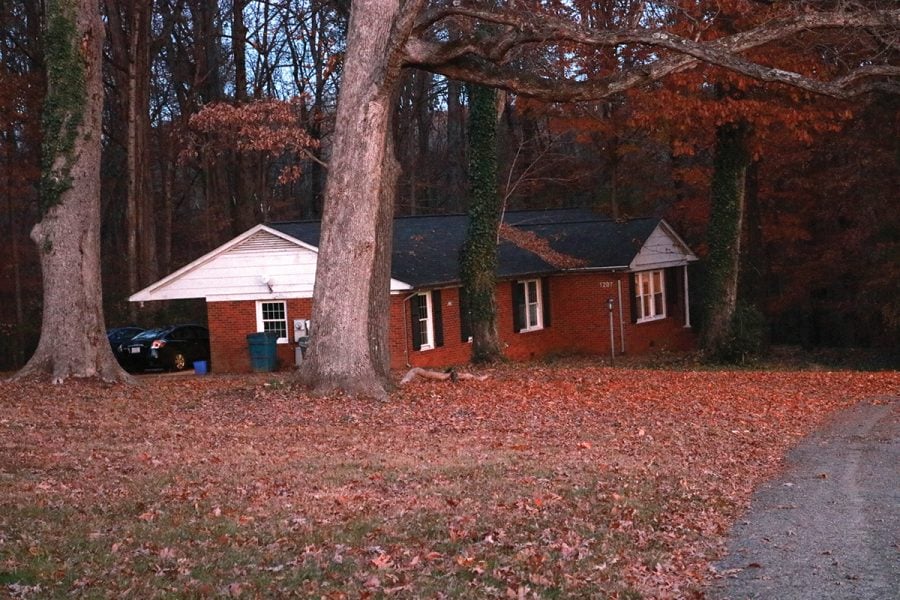Guilford announces end of Theme House Program on campus
Earlier this month, Guilford announced the discontinuance of the campus’ Theme House Program starting in Fall 2019. These residential areas in the community will no longer be housing students after the 2018 to 2019 academic year, and those who are living in them now will be relocated to a different sort of on-campus housing.
For years, Guilford has provided sophomores, juniors and seniors with the opportunity to live together in one of three special interest theme houses known as The Pines, Cobb House and Pope House. Each house has a particular focus and accommodates approximately 10 students. The Pines is focused on sustainability. Cobb and Pope run on this same principle, but the theme that they represent rotates yearly based on current student interests and needs. In the past, the houses have been used to give students a home who identify with substance-free living, are passionate about studying a language and who want to dedicate their time to service.
Many of the students who live in the theme houses have expressed concerns about this decision, with the communities they have built for themselves being on the line. For many, the theme houses have served as an inclusive and supportive space, providing residents with the opportunity to share a common space while working towards growth as a community.
“Theme houses are one of the reasons I came to Guilford to begin with,” said Pines resident junior Addison Ronis. “The idea of having my own independent space to grow and love and learn and create pushed me to apply to live in the Pines two years ago.”
The decision to end this program came as a shock to many students and has been met with vocal disapproval from current Guilford community members and alumni alike, particularly over social media.
Many have expressed that by taking away the theme houses, the campus is effectively taking away a space where Guilford community members feel protected.
“The biggest impact here is the fact that the administration has decided to displace students of color, undocumented students and queer students, who otherwise do not feel safe on this campus,” Ronis said. “Pope and Cobb in particular are designated autonomous spaces for students of color, Pope being the international student house and Cobb being the house for femmes of color. Regardless of what administrators have to say in response to this problem, the impact is real and it has sent a clear message to those students that they do not have a place here at Guilford.”
Cobb House resident junior Tenaja Henson corroborated this statement, describing how living in a theme house has completely changed their student experience.
“For me, I have lived all over the place on this campus, trying to find where I feel safe, don’t encounter racism or other oppressive systems,” Henson said. “In my four semesters here, I moved three times before I found a safe space in Cobb House. I have never had better grades, community, support or love happening for me other than when I began to live in Cobb house.”
According to the administration, the reasoning behind the discontinuance of this program is not personal, but related to cost. To renovate the three theme houses so that they are up to the safety standard they need to be to board students, the College would need to invest $600,000. In the face of these numbers, the administration made an executive decision to close the Pines, Cobb House and Pope House next year, and alerted students after coming to this decision.
“We made the decision (to end the theme housing program) at this time because Milner will be restored next fall, and along with the recently refurbished Binford and the East Apartments, we will have rooms to allow everyone to live in a residence hall where students will be protected with sprinkler systems, fire alarms and other current safety features,” said President Jane Fernandes.
Fernandes also emphasized that although the theme houses themselves may be going away, the opportunity which they present to live in intentional learning communities does not have to.
“Please know that theme learning communities will continue in residence halls,” Fernandes said. “Students can opt to live among peers who are interested in the same theme in a dorm hall, or section of rooms.”
Guilford’s renovations of many other buildings have made students wonder why the theme houses did not make the restoration list, especially considering how sacred these spaces are to the individuals who live there.
“Without having the opportunity to live in a theme house, I don’t know if I would be at Guilford still,” Henson said. “Being in school is hard and having a space that I can come home to that is away from the oppression and pain of the outside world and a college campus has changed me.”
The decision has also called into question for many current students and alumni whether the emphasis Guilford has put on consensus and transparency in the past is being respected, and if future decisions such as these will be made with or without the input of the Guilford community at large.









